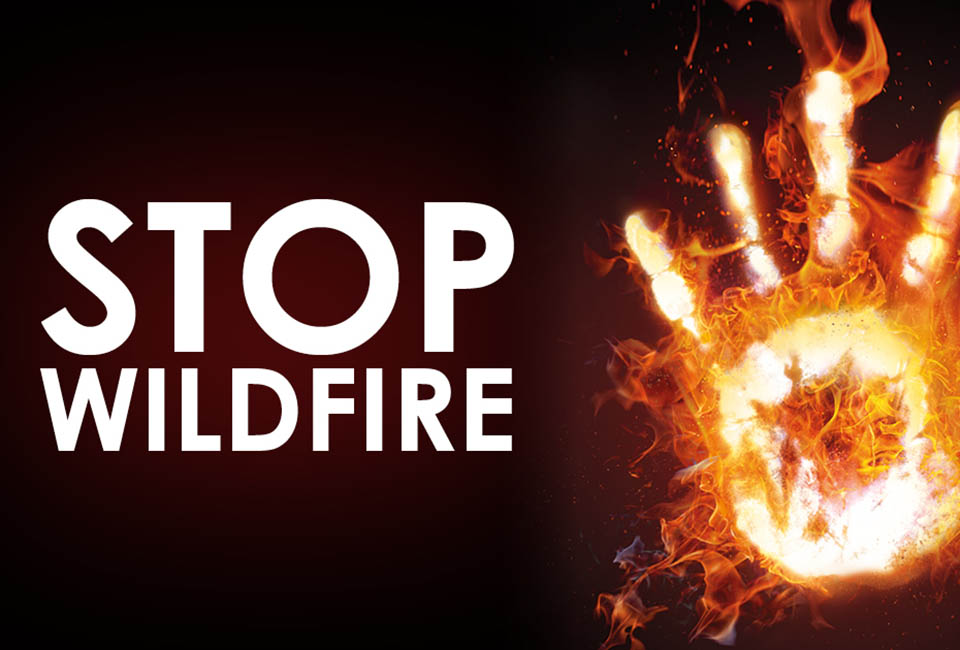Wildfire Groups urge public not to put additional strain on emergency services

4/9/2020
To reduce the risk of wildfires and therefore the strain on fire and rescue services, Wildfire Groups are urging people to reduce the risk of wildfires this bank holiday weekend.
Warmer weather, as Yorkshire is seeing at the moment, often results in an increase of barbeques being left on the ground not properly extinguished, which can spark wildfires. Due to the ongoing Covid-19 situation, and the existing pressure on all emergency services, it is even more important that these avoidable wildfires don’t happen.
Lisa Harrowsmith, Yorkshire Water’s Land and Property Lead Surveyor and Secretary of the North Yorkshire Wildfire Group, said: “The North Yorkshire Wildfire Group’s aim is to reduce the incidents of wildfire, ensure best practice on current managed moors by gamekeepers, and minimise the impacts of wildfires when they do occur, particularly moorland and forest fires.”
The group is working closely with North Yorkshire Fire and Rescue Service to ensure the public understand the steps they can take to reduce the risk of wildfires. The advice is:
- Stay local – don’t drive to beauty spots or moorlands where fires may not be identified quickly
- Only have BBQs in your own garden – it is illegal to have a barbeque on moorland and the government’s guidance around ‘daily exercise’ is that it is not appropriate to stop to enjoy a picnic or barbeque
- Don’t have garden fires – many people are making garden improvements during the current self-isolation period but please don’t risk a wildfire by burning your waste
- Do not fly tip – abandoned rubbish is a fire safety hazard
- Ensure cigarettes are fully extinguished
Yorkshire Water has seen a number of wildfires on or near it’s land in recent years, and most recently with a wildfire near White Holme Reservoir in Calderdale. The company, as part of the Yorkshire Wildfire Groups, is playing a key role in raising awareness of wildfire risks.
Lisa Harrowsmith also said: “We are already seeing an increase in wildfires across the region, and with less people out and about, it is taking longer for them to be reported and dealt with. The government guidance is to stay home, save lives and protect our emergency services – which includes the fire service and rescue teams.”
National Trust have also reported a rise in wildfires recently, with three taking place on Marsden Moor, near Deer Hill Reservoir in the last month.
Craig Best, Countryside Manager at National Trust said “At a time when we are all concerned about the impact of the coronavirus, this is not a job I want my team to be dealing with. The moors are very dry, despite all the rain we had at the start of the year. It is important that we protect the many hundreds of thousands of pounds we have spent on moorland restoration to improve water quality, store carbon, improve homes for wildlife and reduce flood risk.”
Lisa Harrowsmith also explained how wildfires can affect drinking water quality: “The source of much of the water we use in Yorkshire comes from our moorland catchment zones. The problem with wildfires is that they cause this land to dry out, which increases peat sediment getting into reservoirs and causes water colour problems. It is therefore vital that we limit their occurrences rather than having to keep paying more money to treat the water.”
The North Yorkshire Wildlife Group consists of Yorkshire Water, Fire and Rescue Services, The Moorland Association, National Parks, Natural England and private landowners.
Members of the public should adhere to guidance and call 999 if they see a fire.
